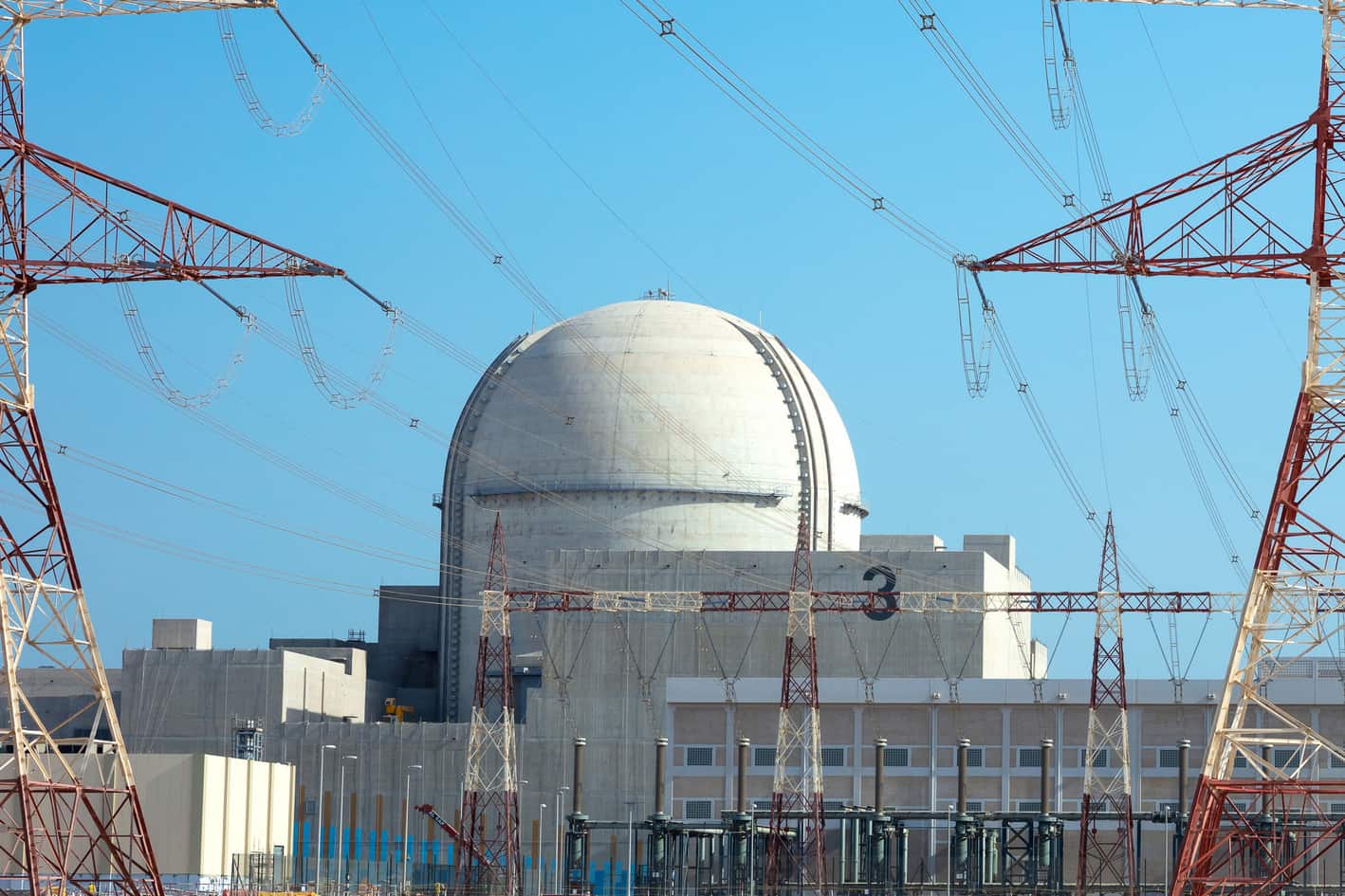ABU DHABI, UAE – The Emirates Nuclear Energy Corporation (ENEC) has signed a new Memorandum of Understanding (MoU) with China National Nuclear Corporation (CNNC).
The two organizations will collaborate on identifying potential development and co-investment opportunities for new international nuclear energy plants.
The MoU was signed by Mohamed Al Hammadi, Managing Director and CEO of ENEC, and Yu Jianfeng, Chairman of CNNC, on the sidelines of COP28 in Dubai, UAE.
ENEC is now focused on harnessing its expertise to work with other leading nuclear energy companies to deliver new plants.
This is in line with current forecasts that nuclear energy capacity will need to triple by 2050 to meet Net Zero targets as part of the broader clean energy transition.
As part of the new MoU, ENEC and CNNC will identify countries looking to expand their existing nuclear energy, or to enter into the sector for the first time to offer their expertise.
They will form a Joint Working Group to leverage their strengths in project management, nuclear technology development and implementation, funding, construction and operation, human resources and supply chain development.
This will enable ENEC and CNNC to potentially jointly develop new nuclear energy projects.
Mohamed Al Hammadi, Managing Director and Chief Executive Officer of ENEC, said, “International collaboration is one of our core commitments and has been a central part of our accomplishments in the nuclear energy sector.”
He said, “Having successfully created the Barakah Plant, we are now focused on strategic investments and innovation that accelerate the global drive to triple global nuclear energy capacity by 2050.”
He added, “By working with our partners in countries like China, we can bring together our skills, knowledge and technology to offer other nations looking to accelerate their own decarbonization efforts.”
Al Hammadi said, “COP28 has provided an ideal platform to further solidify global partnerships and establish new agreements to collectively take action to achieve Net Zero.”
Yu Jianfeng, Chairman of CNNC, said, “I have full confidence in this multinational collaboration and believe that it will introduce new models of cooperation and sustainable development in the global energy sector.”
He said, “The signing of the MoU will be a significant step for CNNC and ENEC in advancing global energy transition. It will set a new paradigm for global energy cooperation and contribute to building a cleaner, greener world.”
Both ENEC and CNNC believe that nuclear energy plays a critical role in addressing global climate change and maintaining energy supply diversity and security.
Earlier this year, ENEC announced the signing of three MoUs with the Nuclear Power Operations Research Institute, the China National Nuclear Corporation Overseas (CNOS) and the China Nuclear Energy Industry Corporation.
China has more than 50 nuclear energy plants in operation, with a further over 20 units under construction.
In addition, ENEC and CNNC signed an MoU to explore potential cooperation opportunities for the development and deployment of High-Temperature Gas Cooled Reactors (HTGR) to set out the pathway for HTGR technology deployment, and how this could be utilized in other countries.
High-Temperature Gas-Cooled reactors offer enhanced safety and efficiency features and can be used for a wide range of applications, for power generation, as well as heat and clean molecules.
First criticality of CNNC’s demonstration project was achieved in 2021.
Nuclear energy offers the unique benefit of ‘always on’ energy, in the form of electrons, heat, steam and hydrogen combined with zero carbon emissions during generation.
Governments around the world are recognizing this value, as data shows that since records began, nuclear energy has been key in enabling the fastest build-outs of clean electricity – in fact, 15 of the top 20 build-outs over the past five years result from nuclear energy.
The favorability of nuclear energy is at a new high, as it is increasingly being recognized as a vital solution for tackling climate change, providing baseload electricity with zero carbon emissions.
More nations are analyzing their own energy portfolios and are considering partnering with experienced countries to establish their own nuclear energy plants as part of global efforts to achieve Net Zero emissions and guarantee greater energy security.
ENEC has successfully built and developed the Barakah Nuclear Energy Plant, a flagship project that is spearheading decarbonization in the Middle East region.
Today Barakah is the largest single source of clean electricity in the UAE, generating 30TWh of electricity annually with a further 10TWh to be added in 2024 when Unit 4 comes online.
It is widely considered a benchmark in the development of new nuclear builds around the world, in terms of project management and efficiency.








